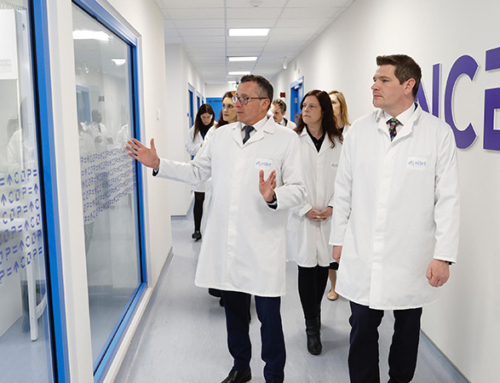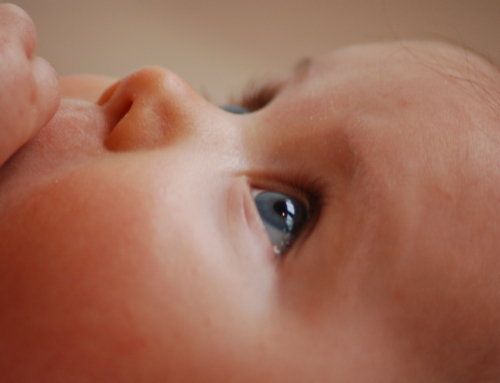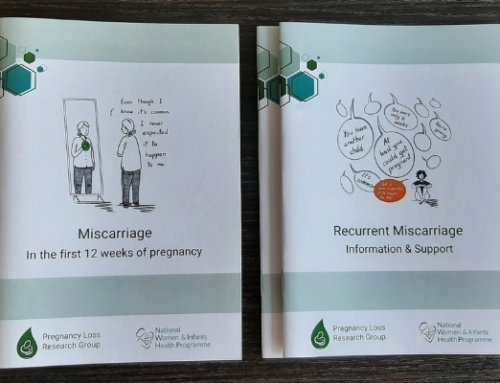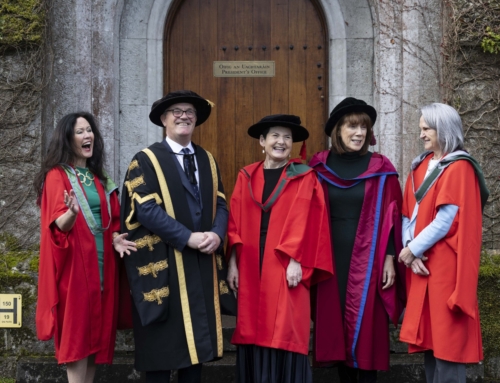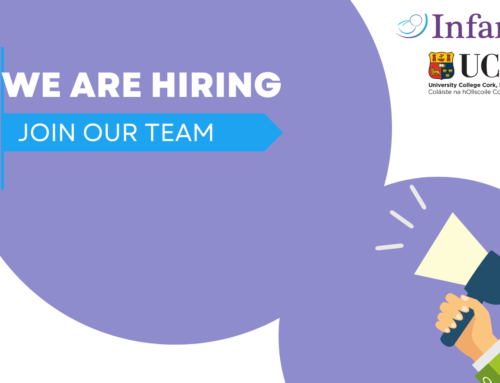Friday 02 November 2018
As published in UCC, College of Medicine and Health “The Research Impact Anthology – Research for a Healthier Future”.
When babies are born it is usually a joyous occasion. In most cases it goes well, but some babies are born either too soon or very sick. They may not have grown well enough in the womb or may have suffered an injury during labour. When you consider that there are 65,000 babies born annually in Ireland – the highest birth rate in Europe – then it is not surprising that we need a research centre to explore how we can make pregnancy and birth safer for our mums and babies,and improve outcomes.
Our dedicated perinatal translational research centre reaches out from the bench to the cotside – often little incubators – in a very real way, so that our innovations are put into clinical practice. Our centre is the first of its kind in the country. INFANT, the Irish Centre for Fetal and Neonatal Translational Research, was established in September 2013 by Prof. Geraldine Boylan and Prof. Louise Kenny, two innovative academics in perinatal
research at our college. They secured a starting grant
from Science Foundation Ireland (SFI) to develop a dedicated research centre in UCC.
Geraldine’s speciality was in the neurophysiology of the baby brain and Louise’s expertise was in preeclampsia and obstetrics. They had each built their own individual talented research teams for several years, and in INFANT, they pooled their resources and built multi-disciplinary programmes. Geraldine, INFANT director, says: “We combined our efforts. We said mothers and babies should be together, so the research should be together!
“We had an excellent research team and a bedrock of good work going on; we were all in the right place at the right time. And what we have in Cork, also, is a great synergy between the university and the hospitals (Cork University Maternity Hospital and Cork University Hospital); it has been perfect for working well in the perinatal space.”
 “If our INFANT Centre, just barely five years old now, could be judged from a child developmental perspective, it has hit all its milestones”
“If our INFANT Centre, just barely five years old now, could be judged from a child developmental perspective, it has hit all its milestones”
“We received €5.9M from SFI to set up the centre in 2013, which enabled us to build the core infrastructure of the centre, and now we have a funding portfolio of €30M. We have outperformed all of our key performance targets and now have 100 staff working in INFANT. We have won funding from the EU, the Wellcome Trust and from industry and received donations through philanthropy. For every one euro of funding we have received from the state, we have been awarded another five euros on top of that, from non-Exchequer sources,” she says proudly.
“Working closely with industry enables our team to get their technologies or new devices or drugs realised, as speedily as possible. This is so important for these vulnerable populations.” Research at INFANT, of course, touches all humanity. Our dedicated researchers are on call 24/7 since a lot of their work explores problematic situations that happen at birth and afterwards, and how these can be prevented down the road for other mums and babies.
None of this could be done, of course, without the families who engage in our research with our multidisciplinary team of doctors, nurses, scientists, engineers, postgraduate students and research support staff. “We need to study mothers and we need to study the babies to find out why problems happen, and we can only do that because of the parents and families who engage with our research. They really understand why we are doing it,” says Geraldine. “I am constantly overwhelmed by their altruism and their generosity. It doesn’t matter what funding in the world we get – without them, this research wouldn’t happen.”
It’s hard to believe that not too long ago it was seen as unethical to do research with children. “Actually it’s unethical not to do it.”
“For a long time children did not participate in research, and as a result, most of the medical devices and many of the drugs we use have never been properly tested for infants or children – even though their development and physiology are completely different to adults. The evidence base isn’t there, so we are working to make sure that medical devices and treatments for children are tested and developed to the best possible standards.”
INFANT is changing that landscape nationally and internationally. Our research is known all over the world; we have delivered over 300 highly cited academic publications in the last four years alone. We are known throughout the world in relation to pre-eclampsia, newborn brain injury, maternal and infant nutrition, and infant allergy. We have lots of high impact papers published in those areas and more in the pipeline.
For the director, she is fully confident that there is no stopping their phenomenal pace of growth: “We have only just scratched the surface of what we need to do for mothers and babies,” she says. “There’s so much more yet to be done and we won’t stop!”


